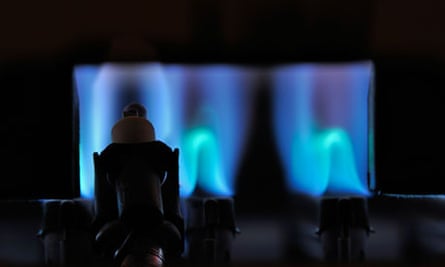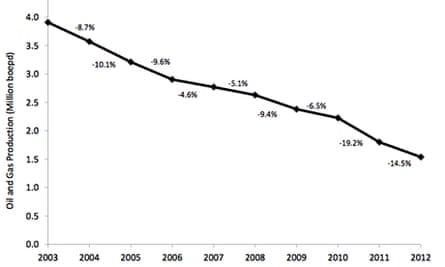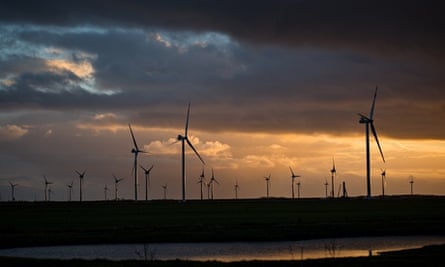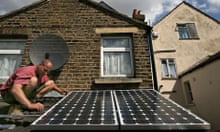How many neanderthals does it take to change a light bulb? None: they didn't have electricity. As jokes go, it's appalling. As a prospect for daily existence, life without power is infinitely worse.
Today, UK homeowners expect flick-of-a-switch access to energy. It keeps our houses warm, our fridges cold and our lights illuminated. Yet where does our power come from? How does it reach us? And why is it becoming so expensive?
Consuming energy
People talk about the UK's "energy mix", which makes it sound a convoluted affair. In fact, we get our domestic energy from one of two sources: electricity (23% of total energy consumption) and gas (68%).
Most of us use electricity to power things, and gas to heat things (water and heating systems, in the main) – although electric boilers and the like demonstrate that the lines can and do often blur.
The remaining 9% of domestic energy comes mostly from oil and solid fuels such as wood and housecoal. The reduction in coal as a base source of energy marks one of the biggest shifts in the UK power market over recent decades. In 1970, a whopping 39% of household energy came from coal, the dirtiest of all fossil fuels. Today the figure is less than 1%.
Another change is our consumption of energy. According to the latest government figures, UK householders collectively get through around 43m tonnes of oil a year. Thanks to better insulation and other energy efficiencies, individual UK homeowners use 12% less energy now than in 1990.

The downside is that there are now more homes, meaning energy consumption overall has gone up by 6% in real terms over the same period.
Making energy
Where things start getting more complicated is when we switch to how we get our electricity and gas. For natural gas, it's easy. The stuff piped into your homes is, bar some sophisticated tampering in the treatment phase, essentially the same as the stuff that comes out of the ground.

Electricity is a different ballgame altogether. Short of tapping an electric storm, natural electricity is difficult to come by. We need to generate it, which is where the "mix" comes in. Interestingly, the main options – coal, gas, and nuclear – have not changed much over the last four decades.
Coal tops the list, much to the continued chagrin of environmentalists. In 2012, it accounted for over a third (36.3%) of the electricity produced by UK power plants. It's not all plain sailing for coal, though. Coal-fired power stations face tough EU reduction targets on sulphur dioxide, nitrogen oxide, and particulate matter emissions. Failure to hit the target deadline, which is next year, is expected to see more than 6 gigawatts of coal capacity forced to close.
Gas (26.8%) and nuclear (19.8%) feed the bulk of the UK's remaining power stations (although a number run off gas and coal combined). Again, the goalposts could move. If a rush for unconventional "shale" gas materialises, then expect more electricity to be gas-generated in the coming years.
As for nuclear, all bar one of the UK's 16 nuclear power stations are set for retirement over the next decade. Replacing the country's ageing nuclear stock is hugely costly and politically contentious, as debate around the proposed £16bn Hinckley Point nuclear power station reveals.
Renewables such as solar, hydro and wind continue to valiantly struggle at the bottom of the list. That said, clean electricity's contribution to UK power generation is growing fast, reaching 14.8% last year, up from 11.3% in 2012 and 9.4% in 2011. Even so, the figure will have to jump to 30% by 2020 if the UK is to meet its renewable obligations under EU law, according to the government's own projections. Likewise, renewable heating will need to increase to 12%, up from around 2% today.
Sourcing energy
The majority of our electric power carries a "made in Britain" sticker, bar a fraction that we import from France and The Netherlands (4%). But the story of the fuel stocks burned (or "fissioned", in the case of nuclear) in our power stations is a very different matter.
Take coal: over the last six decades, the number of coalmines in the UK has decreased by 97% leading to an "all time low" domestic production figure of 17m tonnes in 2012. That saw the UK importing an additional 45m tonnes – the bulk of which (89%) is steam coal, used mainly by electricity generators.

The UK does better off for gas, although production in the North Sea is in general decline [see Oil & Gas UK graph]. Even so, the UK managed to produce just over 32m tonnes of oil equivalent (mtoe) last year. With national gas demand running at 67 mtoe, however, the UK has a sizeable import requirement.
As for nuclear, the UK has been self-sufficient in conversion, enrichment, fuel fabrication, reprocessing and waste treatment from the outset. Again, with no domestic uranium reserves, the country is dependent on overseas supply.
Within the energy mix, renewables are unique in being fully sourced and produced locally.
The UK boasts a number of large-scale renewable facilities, such as commercial wind farms and hydroelectric schemes. Plans for the country's first commercial tidal project are also underway. Yet much of the UK's clean energy capacity is ultra-local, coming in the form of household photovoltaic panels, micro-wind turbines, biomass boilers and the like.
Pricing energy
After a substantial period of relative decline, the price of gas and electricity has begun to creep up over the last decade or so. And the pace appears to be accelerating. Between 2010 and 2013, UK energy prices shot up 37%, eight times the rate of earnings. The average annual electricity bill for UK homeowners came in at £776 last year, up by £57 on 2012.
So why the spike? According to a UK parliamentary report, much of the blame lies with increases in wholesale costs. Exacerbating the trend upward are higher operating, network and environmental costs. The UK's major energy providers, known as "the big six", are quick to join the government in pointing the finger at the rising cost of wholesale prices, particularly in the case of imports.
But are these six powerful companies also responsible? Consumer rights' group Which? has long argued that the UK's large energy providers employ "practices that unfairly increase costs" as well as over-complicating pricing structures and switching policies. Last month's announcement of a review into of the UK energy market by Ofgem, the sector's regulator, suggests the concerns of consumer groups are being heard.
But the prospects for reducing household energy bills in the short-term look slim. The UK has little influence over wholesale prices and seemingly little immediate intention to reduce imports. "In the medium to long term the pressures on price all appear to be upwards," the report authors conclude.
Their advice to homeowners is equally blunt: "The only way for most consumers to reduce the impact of increased unit costs, and even to reduce their bills, is through energy-efficiency improvements."
This article is part of the Guardian's #bigenergydebate series. Click here to find out more about this project and our partners.









Comments (…)
Sign in or create your Guardian account to join the discussion